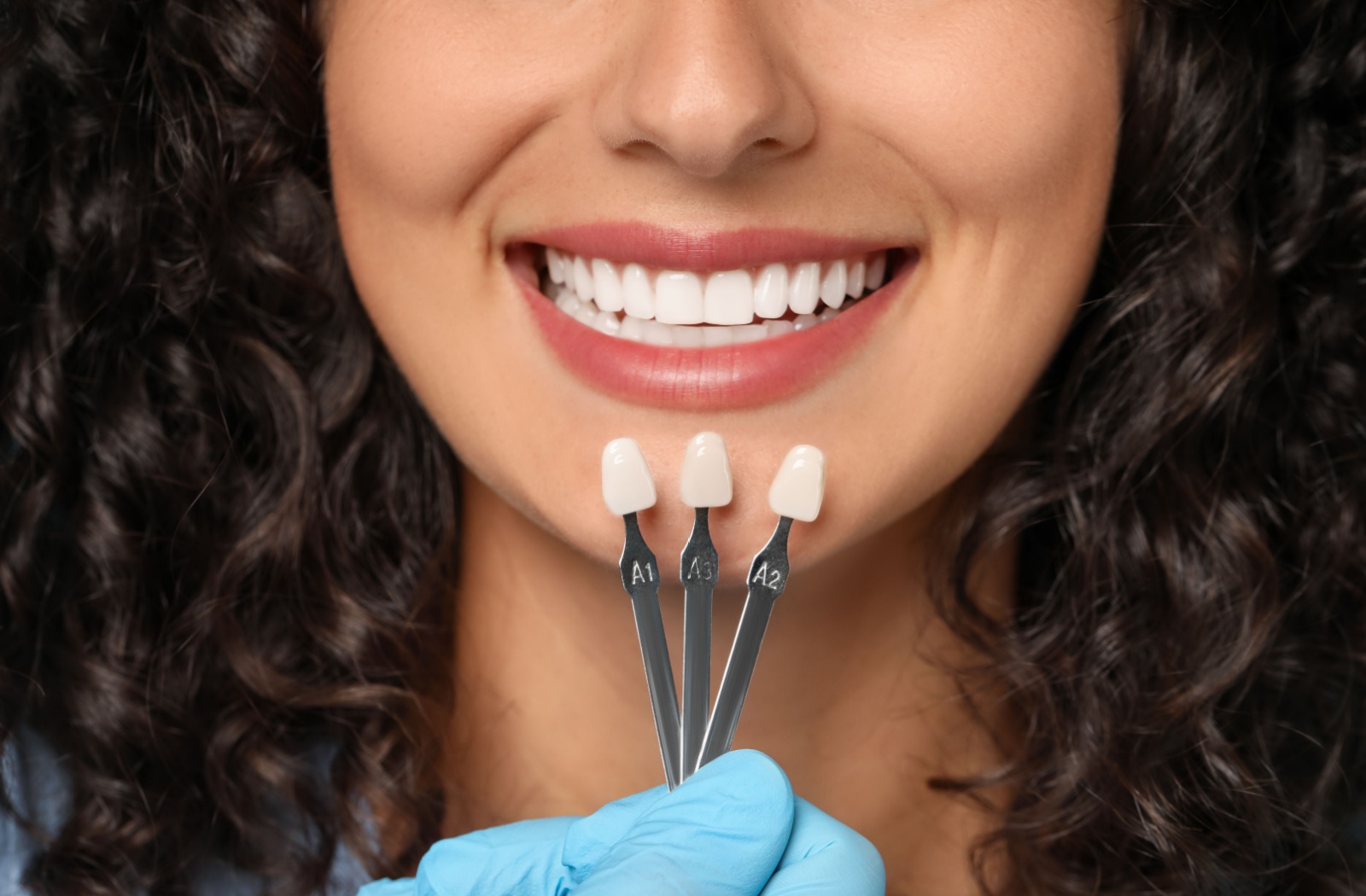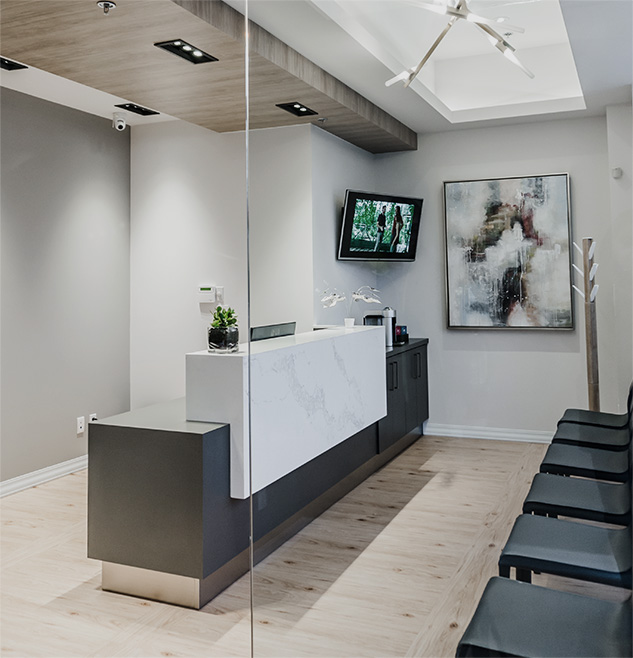Veneers can make a noticeable difference in your smile, offering a durable and beautiful solution for correcting chipped, discoloured, or uneven teeth. But like any dental treatment, they come with their own lifespan and maintenance.
Veneers can typically last anywhere between 10 to 15 years, but their lifespan can vary depending on factors like oral hygiene, teeth grinding, and general wear and tear. Regular dental checkups and proper maintenance are key to extending their longevity.
What Are Veneers?
Veneers are customized to improve the appearance of your smile by changing the shape, colour, size, or length of your teeth. They are thin, custom-made shells designed to cover the front surface of your teeth.
Veneers can fix a range of cosmetic concerns like discolouration and spacing. They can also address dental concerns such as broken, chipped, or cracked teeth and cavities.
Types of Veneers
Each type of veneer has its own advantages and considerations. A thorough consultation with your dentist can help you decide which type might suit you best. The 2 most common veneers on the market currently are porcelain and composite veneers.
1. Porcelain Veneers
- Pros: Durable, stain-resistant, and highly lifelike in appearance. Porcelain veneers mimic the translucence of natural teeth.
- Cons: They are more expensive and may require a longer preparation and placement process.
2. Composite Veneers
- Pros: Less costly and faster to apply since they can often be done in 1 visit. They can also be easily repaired.
- Cons: Not as stain-resistant as porcelain and may not last as long, requiring more frequent replacements.
The Process of Getting Veneers
Like with any dental procedure, the first step to getting veneers involves an initial consultation. Your dentist will evaluate your smile, discuss your goals, and determine whether veneers are the right solution for you. They can also help you decide which type suits your needs.
The procedure itself typically involves multiple appointments:
- Preparation: For traditional or porcelain veneers, a small amount of enamel may be removed to make space for the veneer. Impressions of your teeth are taken to create a precise fit.
- Placing temporary veneers: While your custom veneers are being crafted, your dentist may replace the portion of the tooth removed with temporary veneers. Temporary veneers should be treated gently since they are fragile, but they can help protect your teeth while you wait for your durable, custom-made veneers.
- Placing custom-made veneers: Once your veneers are ready, they’ll be bonded to your teeth using a strong dental adhesive. Your dentist will make final adjustments until they achieve the right fit and a natural look.
Veneer Longevity
On average, porcelain veneers last 10–15 years, while composite veneers may last 5–7 years with proper care. However, these times are not set in stone—some people can enjoy their veneers for even longer with diligent maintenance.
Recent studies on dental restorations have found that over 90% of veneers remained intact after 10 years when paired with exceptional oral hygiene and regular dental care.

Factors Affecting Veneer Longevity
Several factors can reduce the lifespan of your veneers, including:
- Poor oral hygiene
- Smoking
- Teeth grinding
- Hard, sticky, and acidic foods
- Poor maintenance
Tips for Making Your Veneers Last
Your dentist can provide personalized guidance to help keep your veneers in good shape. Here are a few tips to get you started:
- Maintain excellent oral hygiene: Brush twice daily with a soft-bristle toothbrush, floss daily, and consider using mouthwash to prevent plaque buildup.
- Avoid hard foods: Biting hard things like ice or nuts can damage your veneers. Use caution when eating sticky or tough foods, as well.
- Wear a mouthguard: If you grind your teeth at night, wearing a custom-fit mouthguard can protect your veneers from damage.
- Schedule regular checkups: Routine visits to your dentist can help detect any early signs of veneer wear or damage. Your dentist can also take care of your natural teeth beneath, helping them stay healthy.
- Limit staining foods: Reduce consumption of coffee, red wine, or soda, and avoid smoking to keep your veneers looking pristine.
Signs Your Veneers May Need Replacement
Dental restorations are designed to last, but many of them may need replacement down the line. Knowing the signs that your veneers need replacement allows you to take action promptly. Look out for:
- Visible wear & tear
- Loosening or detachment
- Discolouration
While porcelain veneers resist stains, it is possible for them to become discoloured over time due to aging or underlying tooth changes.
Additionally, gum recession may expose the edges of the veneers, affecting their appearance.
Show Off a Fresh Smile with Veneers
Veneers can help transform your smile, and with proper care, they can last for years. By understanding the types of veneers, the process, and what factors affect their longevity, you can feel prepared walking into your first consultation.
At Markham Dental Smiles, we are dedicated to helping you achieve the smile you’ve always dreamed of in a way that feels right for you. Whether you’re curious about how veneers can enhance your look or have specific smile goals in mind, we’d love to talk them through with you. Book an appointment with our team today to get started!







